Table of Contents
- Introduction
- Kava & Mental Health
- Kava for Anxiety
- Herbal & Natural Alternatives for Anxiety
- Vitamins for Anxiety and Depression
- Mindfulness & Lifestyle Approaches
- Conclusion
- FAQs
Introduction
If you live with anxiety, you already know the feeling; it shows up in your body before your mind even has time to catch up. The racing heart. The restless thoughts. The sense that calm is just out of reach.
Here’s the good news: calm is closer than you think. You don’t always have to rely only on prescription medication. Nature has been offering solutions for centuries. Roots like kava for anxiety, herbs, vitamins, and mindfulness practices all give us ways to support mental health safely and naturally.
Summary of Key Points:
- How kava root for anxiety works and why people find it calming.
- The best kava for anxiety and what dosage is safe.
- How fast kava works and whether it’s better than CBD.
- Which herbs and vitamins ease anxiety naturally.
- Vitamins for anxiety include B-complex, magnesium, and vitamin D.
- Why mindfulness makes all the difference.
- Relief doesn’t always need a prescription.
Kava & Mental Health
Kava has long been used as a natural remedy to promote relaxation and support emotional balance. Its calming properties may help reduce stress, ease anxious thoughts, and improve overall mental well-being. By influencing mood-regulating pathways in the brain, kava offers a gentle, plant-based approach to supporting mental health and providing natural stress relief.
Can kava help with mental health?
Kava is a root from the South Pacific, traditionally used in ceremonies to bring people together. Science now confirms what island cultures always knew: kava has a calming effect on the brain. It works on GABA receptors, which play a major role in stress and mood. This makes kava supplements for anxiety a promising natural option for mental health.
Why does kava make you happy?
People who use kava often describe a mix of calm and contentment. Unlike alcohol, which can dull the senses, kava relaxes the body while keeping the mind clear. This comes from compounds called kavalactones. They boost dopamine and slow down overactive nerve signals. The result? A peaceful, grounded kind of happiness.
Kava for Anxiety
Kava is widely recognized for its potential to ease anxiety and promote a sense of calm without impairing mental clarity. The active compounds in kava, known as kavalactones, work by interacting with the brain’s neurotransmitters to reduce feelings of stress and restlessness. For many people, kava offers a natural alternative to conventional anxiety treatments, helping to relieve tension and support relaxation in a gentle, plant-based way.
What is the best kava for anxiety?
Not all kava is created equal. The best kava for anxiety comes from noble kava strains, grown traditionally and known for steady, reliable effects, usually used in high-quality products like GoldenGlow. Avoid tudei kava, which can cause unpleasant side effects like headaches or nausea. If you want gentle calm, stick to noble strains. For a broader look at the differences between noble and tudei kava, check out our detailed guide.
How much kava should I take daily for anxiety?
Dosage matters more than you think. A safe kava dosage for anxiety usually falls between 100 and 250 mg of kavalactones a day. Always start at the lower end. See how your body responds before increasing. More is not better with kava.
How quickly does kava work for anxiety?
One reason kava is popular is its speed. Most people feel calmer within 20 to 30 minutes. Relief can last for 2-3 hours, making it useful for moments when anxiety spikes, like before a meeting or flight.
Is kava better than CBD for anxiety?
Kava and CBD both help with anxiety, but in different ways. CBD interacts with the body’s endocannabinoid system. Kava works directly on GABA receptors. Some people prefer the fast, noticeable calm from kava. Others like CBD for daily, long-term stress management.
Kava dosage for anxiety
Consistency is key. Kava can be used occasionally for quick relief or regularly in moderate amounts. Just avoid high daily doses, which can stress the liver. Think of kava as part of a balanced approach, not the only tool.
Herbal & Natural Alternatives for Anxiety
Herbal and natural remedies have been used for centuries to calm the mind and ease anxious feelings. Options such as valerian root, passionflower, ashwagandha, and rhodiola provide gentle, plant-based support for stress relief and relaxation. These natural alternatives offer a holistic way to manage anxiety and promote emotional balance without relying solely on conventional medication. Kava is powerful, but it’s not the only option.
Valerian Root
Valerian root is well known as a natural sedative that helps calm the nervous system. It is often used to alleviate restlessness, reduce anxiety, and enhance sleep quality.
Passionflower
Passionflower is valued for its ability to reduce racing thoughts and promote relaxation. It may also support deeper, more restful sleep.
Ashwagandha
As a powerful adaptogen, Ashwagandha helps the body adapt to chronic stress. It supports both emotional balance and resilience against anxiety.
Rhodiola
Rhodiola is an energizing adaptogen that helps fight fatigue while keeping stress levels balanced. It promotes mental clarity and emotional stability.
Are they stronger than prescription drugs like Xanax? Not instantly. Herbs usually work more gently. But for many people, they provide steady relief with fewer side effects.
Vitamins for Anxiety & Depression
Vitamins play a crucial role in supporting brain chemistry and stabilizing mood naturally.
Nutrients like B-complex, Vitamin D, and Magnesium help reduce stress, boost energy, and promote relaxation.
Sometimes anxiety isn’t only about stress, it’s about nutrition. Your brain needs certain vitamins and minerals to function well.
Vitamin B-Complex
Vitamin B-complex plays a vital role in producing neurotransmitters, the brain chemicals that regulate mood and emotional balance. Adequate levels of vitamin B can help reduce stress, boost energy, and support overall mental well-being.
Vitamin D
Often referred to as the “sunshine vitamin,” Vitamin D is essential for supporting healthy serotonin levels. People with low exposure to sunlight are more likely to have a deficiency, which can contribute to anxiety and depression. Maintaining healthy Vitamin D levels can improve mood stability and resilience.
Magnesium
Magnesium is a powerful mineral that helps calm nerve activity and ease tension in the body. It supports relaxation, reduces restlessness, and may play a significant role in alleviating anxiety symptoms when regularly included in the diet.
The best vitamin for anxiety depends on your body. If you’re deficient, supplementing can make a huge difference. Getting tested and choosing the right support is key.
Mindfulness & Lifestyle Approaches
Mindfulness practices and healthy lifestyle choices can significantly reduce anxiety by promoting calm and balance. Simple habits like meditation, deep breathing, exercise, and quality sleep help strengthen resilience and support overall mental well-being. Supplements can help, but your daily habits shape how your mind feels.
Does mindful drinking work?
Yes. Mindful drinking, whether it’s kava, tea, or even water, forces you to slow down. You notice taste, smell, and sensation. That pause is often enough to pull your mind away from anxious spirals
What are 5 ways I can practice mindfulness?
Slow, deep breathing exercises: calm the nervous system.
Body scans: notice and release areas where tension hides.
Mindful walking: focus on each step and movement.
Gratitude journaling: list three positive moments each day.
Digital breaks: give your brain time away from screens.
These small shifts, practiced daily, strengthen resilience and reduce reliance on supplements alone.
Conclusion
Anxiety can take over your days, but it doesn’t have to. Nature offers a toolkit of safe, proven solutions. Kava for anxiety brings quick relief when used responsibly. Herbal remedies and vitamins provide steady support. Mindfulness practices create lasting resilience.
FAQs:
Is kava safe to take every day for anxiety?
For most people, yes, when it’s used in moderation. Stick with noble kava strains and avoid going over the recommended dosage. Like anything, daily high use isn’t a good idea, so listen to your body and give it breaks when needed.
Can kava cause side effects or liver damage?
It can, but usually only if you overdo it or use poor-quality kava. The safest bet is to choose noble strains, avoid heavy daily use, and buy from trusted sources. That way, the risks stay low while you still get the benefits.
How long do the effects of kava last for anxiety relief?
Most people feel calmer within half an hour, and that relaxed state can last about 2 to 3 hours. It’s not permanent, but it’s often enough to get through stressful situations like social events, meetings, or travel.
What natural herb works fastest for anxiety relief?
Kava is one of the quickest to kick in, with effects you’ll notice in 20–30 minutes. Valerian root is another strong option, though it’s often better for winding down at night.
Which is better for anxiety: kava or valerian root?
They work in different ways. Kava is great for social anxiety or sudden stress, while valerian root is better if your anxiety keeps you from sleeping. Many people actually use both at different times.
Can herbal remedies replace prescription anxiety medications?
For some people, they can reduce the need for medication. But it’s not always an even swap. If you’re thinking about making changes to your treatment, it’s best to talk with a doctor first and see how herbs can fit safely into your plan.
Do magnesium supplements help with anxiety and depression?
Yes, magnesium can make a real difference. It helps your muscles and nervous system relax, which in turn calms the mind. Many people with anxiety or depression find their symptoms improve once they get enough magnesium.
Can B vitamins reduce anxiety symptoms?
Definitely. B vitamins fuel the brain chemicals that control mood. When your levels are low, anxiety often feels worse. A good B-complex can give your system what it needs to stay balanced.
Can mindfulness reduce the need for supplements or kava?
For some, yes. Mindfulness trains your mind to step out of the stress loop. Over time, that can mean you don’t need supplements as often, or you use smaller amounts because your baseline stress is lower.
What daily habits are best for reducing anxiety naturally?
Simple things go a long way: regular exercise, good sleep, balanced meals, time outdoors, and daily mindfulness practice. Small, steady changes in your routine often add up to big shifts in how calm and grounded you feel.

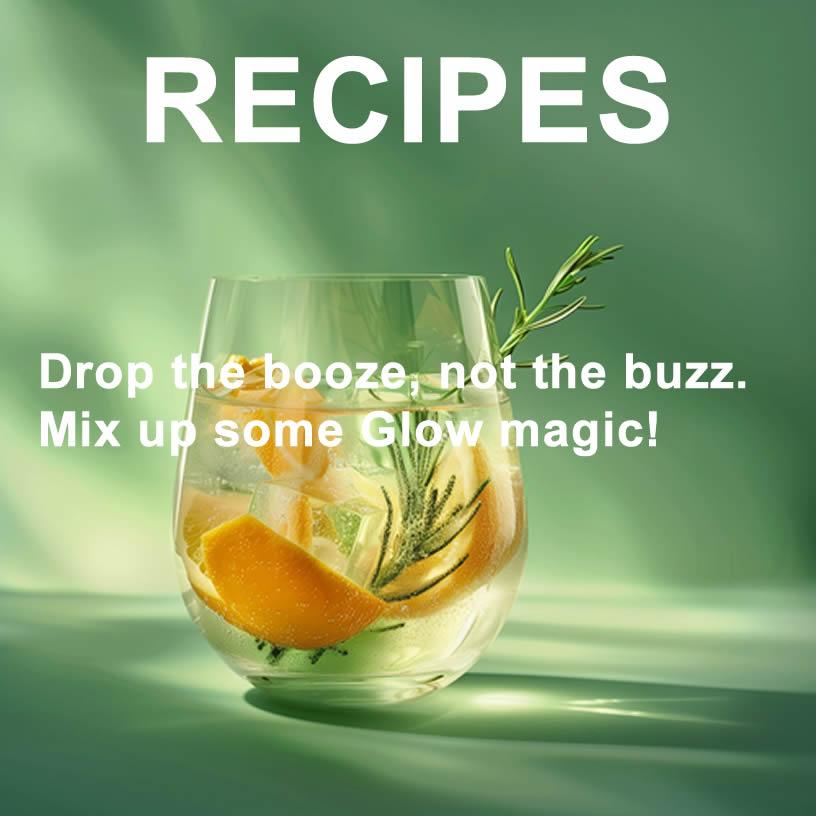

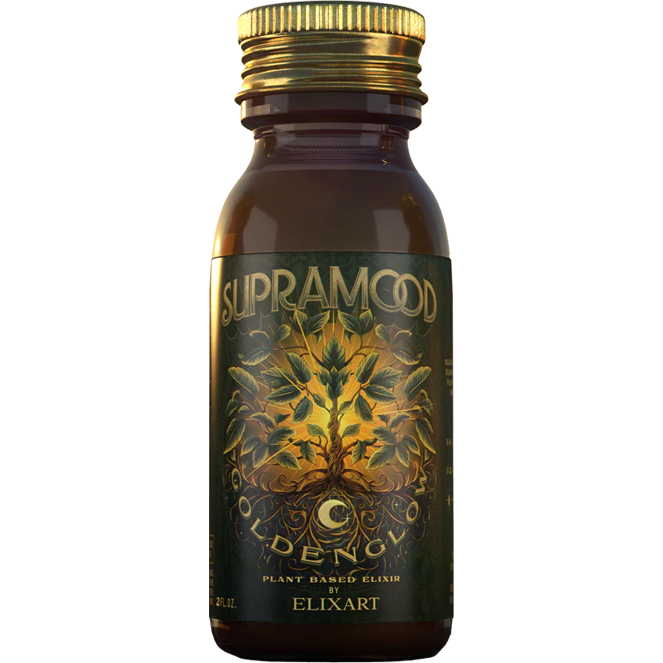
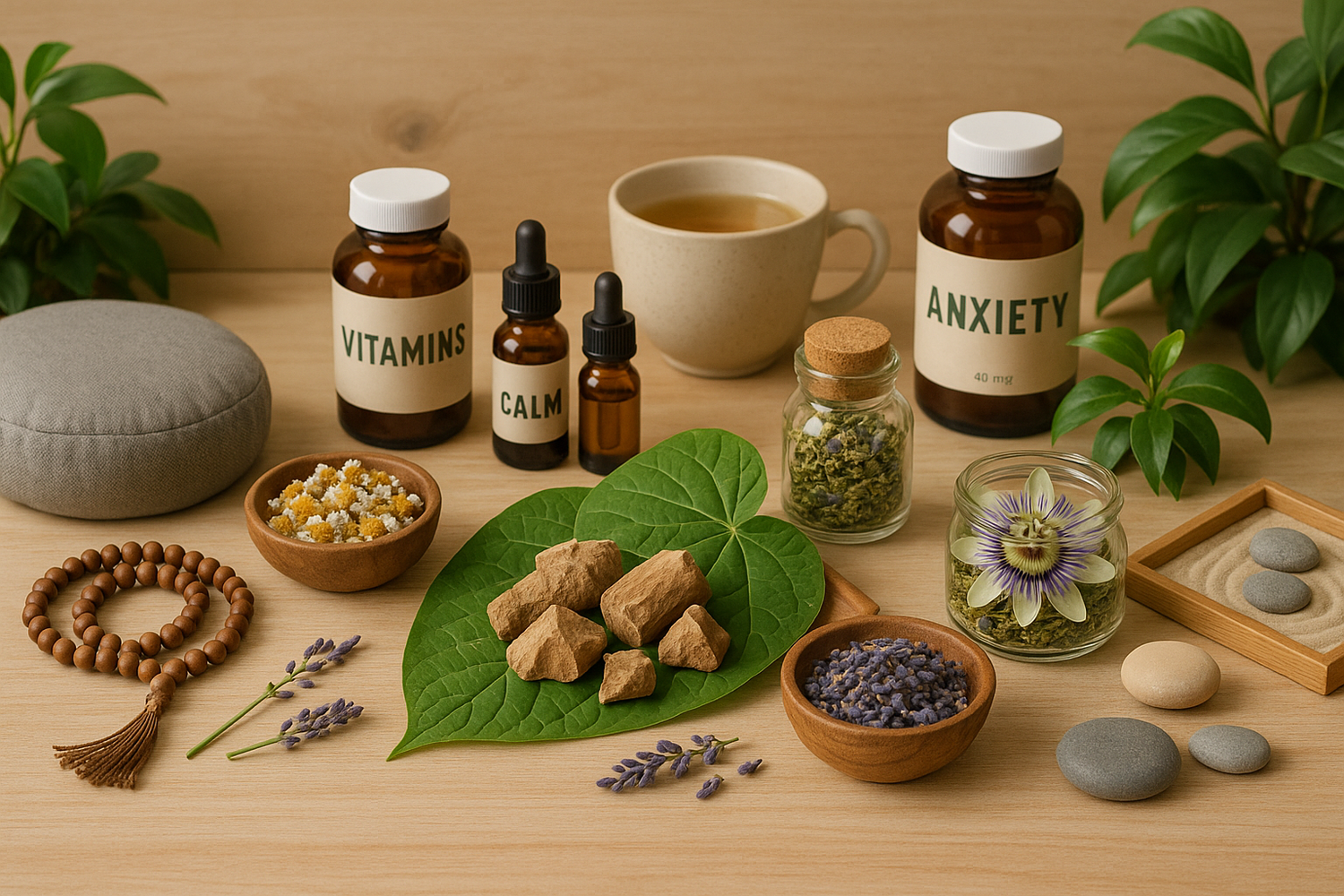
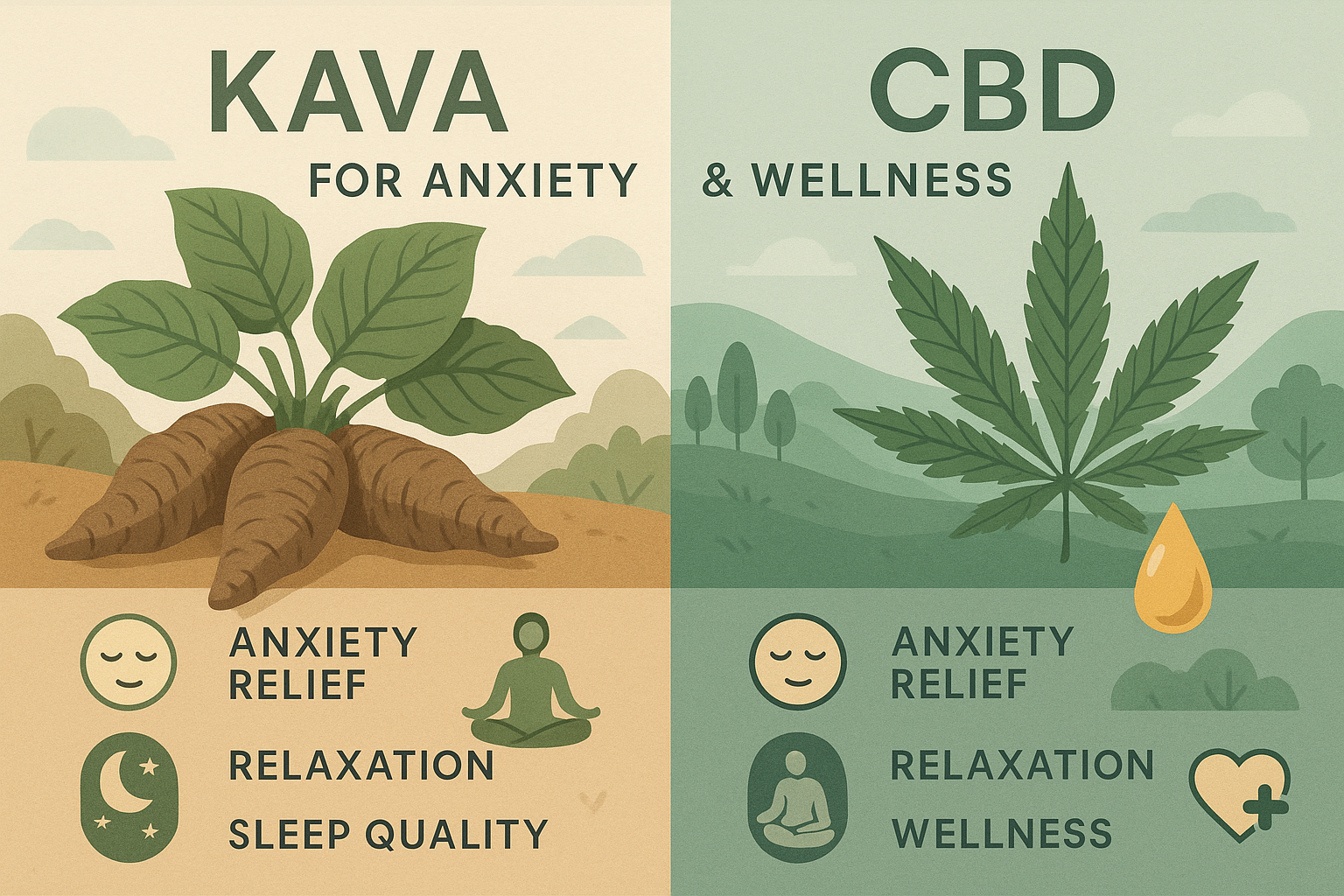
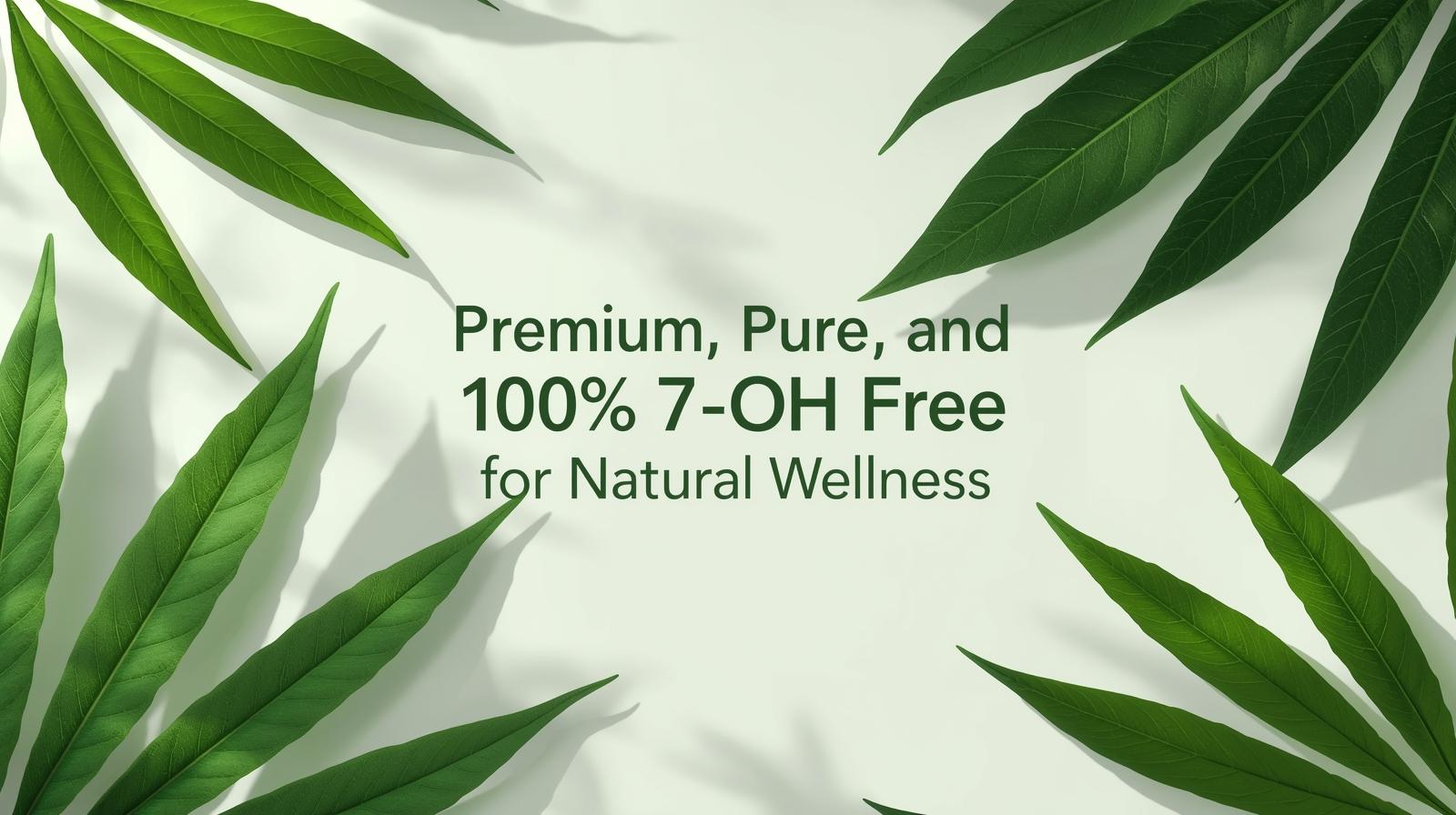
Leave a comment
All comments are moderated before being published.
This site is protected by hCaptcha and the hCaptcha Privacy Policy and Terms of Service apply.